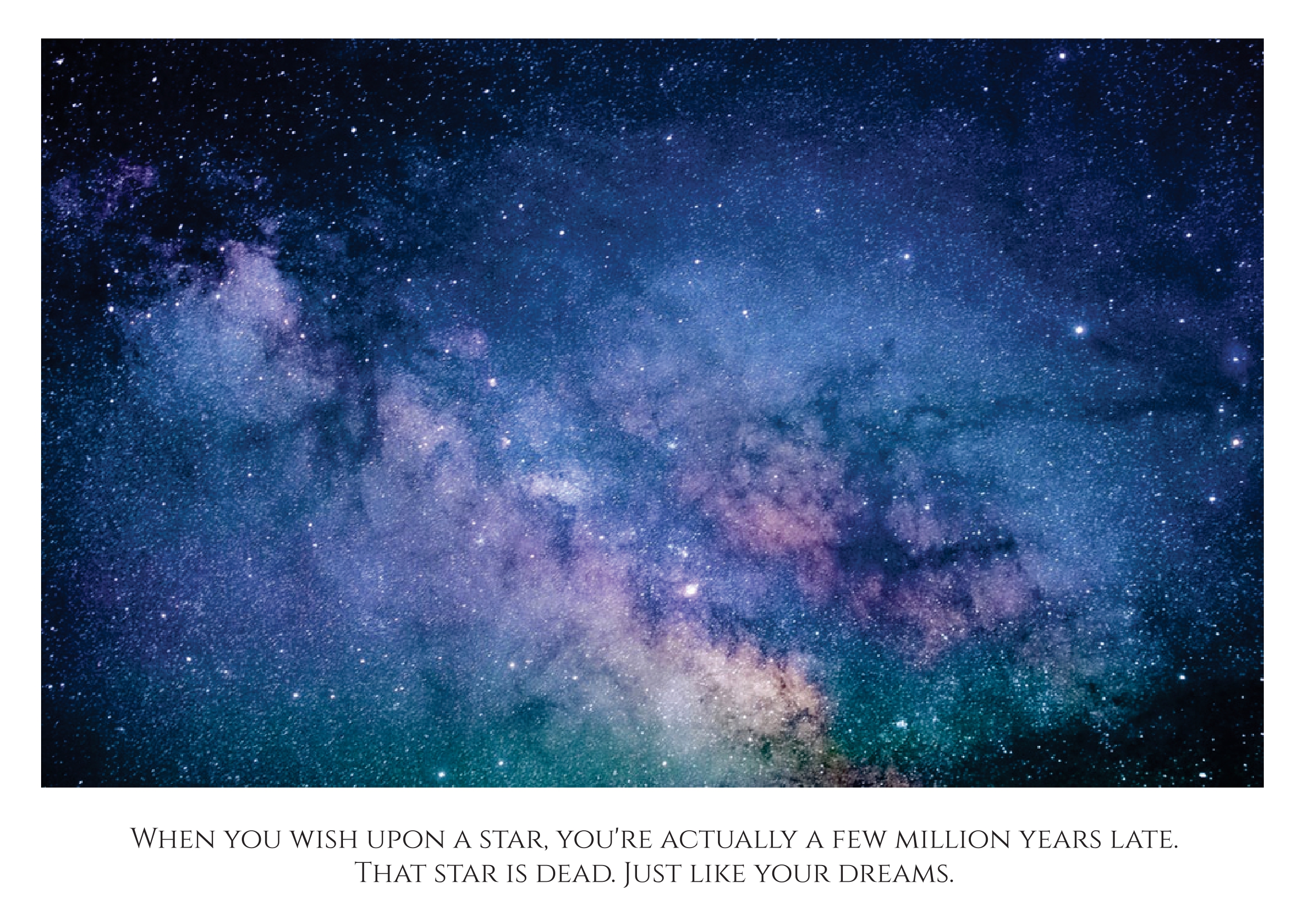
Click for bigger (3040 kb)
From the The Self-Sabotage Industry challenge. See all 52 entries (closed)
(, Mon 9 Jun 2025, 12:46, archived)
The brightest stars in the most distant visible galaxies are probably* dead** by now***, but the chances of you picking one of them at random over all the brighter nearby objects seem low. Visible nearby stars are likely to have billions of years left on the clock.
*Assuming the galaxy is light years further away than the total lifespan of the supergiant (which formed late enough for us to still observe it today).
**Dead via supernova and/or collapsing into a black hole, the former being quite a bright event that lingers for thousands/millions of years, the latter potentially brighter still if it has a lot of stuff to feed on.
***The speed of light is the speed of causality. Nothing that occurred in a distant galaxy thousands of light years away can affect us until their changes in information, mass and energy actually reaches us, so their past IS our present and our past IS their present.
People assume that time is a strict progression of cause to effect, but actually from a non-linear, non-subjective viewpoint, it's more like a big bag of bollocks.
The most common stars, invisible to the naked eye, will last for thousands of billions of years.
(,
Mon 9 Jun 2025, 17:02,
archived)
*Assuming the galaxy is light years further away than the total lifespan of the supergiant (which formed late enough for us to still observe it today).
**Dead via supernova and/or collapsing into a black hole, the former being quite a bright event that lingers for thousands/millions of years, the latter potentially brighter still if it has a lot of stuff to feed on.
***The speed of light is the speed of causality. Nothing that occurred in a distant galaxy thousands of light years away can affect us until their changes in information, mass and energy actually reaches us, so their past IS our present and our past IS their present.
People assume that time is a strict progression of cause to effect, but actually from a non-linear, non-subjective viewpoint, it's more like a big bag of bollocks.
The most common stars, invisible to the naked eye, will last for thousands of billions of years.